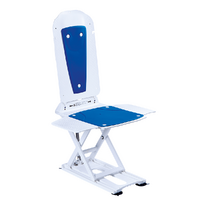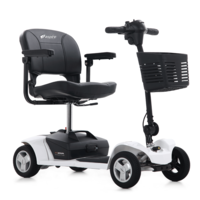Getting help when caring for a loved one
Caring for a loved one is one of the most important roles that you can take on. But making sure they receive the best possible care can be overwhelming – physically and emotionally. It can mean your own care needs are pushed to the bottom of the to do list. Asking for help as a carer is essential so that you can continue to provide the best care possible.
There are over 2.65 million carers across Australia, providing support to family members and friends experiencing disability, a chronic condition, illness or poor health. More than half of carers provide care for at least 20 hours a week, with one-third providing 40 hours or more of unpaid care each week.
Carers may give up paid work or sacrifice social activities, holidays and personal tasks to provide care. But, while it can be a difficult role to take on, carers overwhelmingly say it’s a positive and rewarding experience.
If you’re caring for a loved one, know you’re not alone. Help is available. And getting help when you need it ensures you can provide the best possible care for your loved one.
Asking for help as a carer
It’s common to experience a range of emotions as a carer. You might feel anger, frustration, resentment, guilt, stress or worry (as well as happiness, satisfaction and joy).
Chatting through your feelings is a good way to process them. This might be arranging a coffee catch up with a friend. But don’t be afraid to seek professional help. A therapist or counsellor offers a supportive environment where you’re able to freely express your frustrations without judgement. They’ll also be able to help you develop tools to better manage your emotions and build resilience.
You can also access counselling through other support services. Carer Gateway is a government supported organisation that offers dedicated help to carers. They have an online and phone counselling service that you can access to chat about any challenges you are facing.
Getting day-to-day support
You may be providing a few hours of care a week, or looking after someone full time. Your tasks and responsibilities may not be consistent day-to-day. And over time, the care needs of your loved one – or your own needs – may change, and you may not be able to provide the same level of care.
First, are there other family members or friends who can step in for a few hours a week to allow you to take a break? You’ll likely have people in your circle that want to help, but they’re just not sure how. Even something as simple as picking up groceries, running errands or sitting with your loved one for an hour can give you some much-needed time for yourself.
Also consider whether there are any specific tasks that you need help with – whether that means getting the right equipment or having someone else there to assist. As a carer, you’re most at risk of injury during lifts and transfers. Mobility aids can make transfers safer for both you and your loved one. A specialist like an occupational therapist can recommend equipment and techniques to make these tasks easier.
Smart home aids by SOFIHUB can also make caring for someone at home easier. These devices can be used to discreetly monitor a resident’s movement throughout the house and send out an alert if something out of the ordinary happens. Additionally, SOFIHUB provides routine reminders throughout the day for things like medication, meals and bathing, which can help to take the burden of remembering these everyday tasks off the carer.
Also look into whether more structured support is available. You might be able to arrange services through My Aged Care and the NDIS to help you provide care for your loved one.
You might also find support through local networks, Facebook groups or community groups. While informal, these types of groups allow you to connect with other carers who know what you’re going through.
Taking a break
Respite services are designed to help carers take a break while making sure their loved one continues to get appropriate care and support.
As much as you want to be there for your loved one, everyone can benefit from time apart. It not only allows you to go off and do your own thing, but it also allows your loved one to interact with someone new or join in community activities.
Respite services are often arranged via organisations like My Aged Care, Carer Gateway or Carers Australia, depending on the needs of your loved one. As a first step, reach out to these organisations to find out what’s available and how to make arrangements.
Remember, taking some time off can help you better manage your own health and improve your wellbeing.
Emergency care plans
As much as we don’t want to think about it, emergencies happen. If you get sick or have an accident, it’s important to have a care plan in place so you can focus on getting better and your loved one continues to get the care they need.
An emergency care plan should include all the information someone needs about the person you care for. This includes:
- contact information for doctors and treatment providers;
- information about medication and where to get more, if needed;
- care needs and other tasks that you carry out;
- upcoming appointments, and;
- anything else you think someone should know.
It’s also a good idea to create a wallet-sized care card to carry with you containing information about the person you care for and who can be contacted in the event of an emergency. This way, if the unfortunate does happen, your loved one can receive assistance quickly.
Getting financial help as a carer
As a carer, you play a vital role in the community and you might be able to receive financial support from the government. The level of payments available depend on how much of your time you spend caring for your loved one, as well as some other criteria.
As well as direct payments, you may be eligible for a Companion Card. This is a national government program that allows carers of someone with a lifelong disability to attend events and use public transport without incurring the cost of an additional ticket.
Carer Gateway has information on accessing payments and subsidies and they can help you figure out what you might be entitled to and how to apply for it.



























